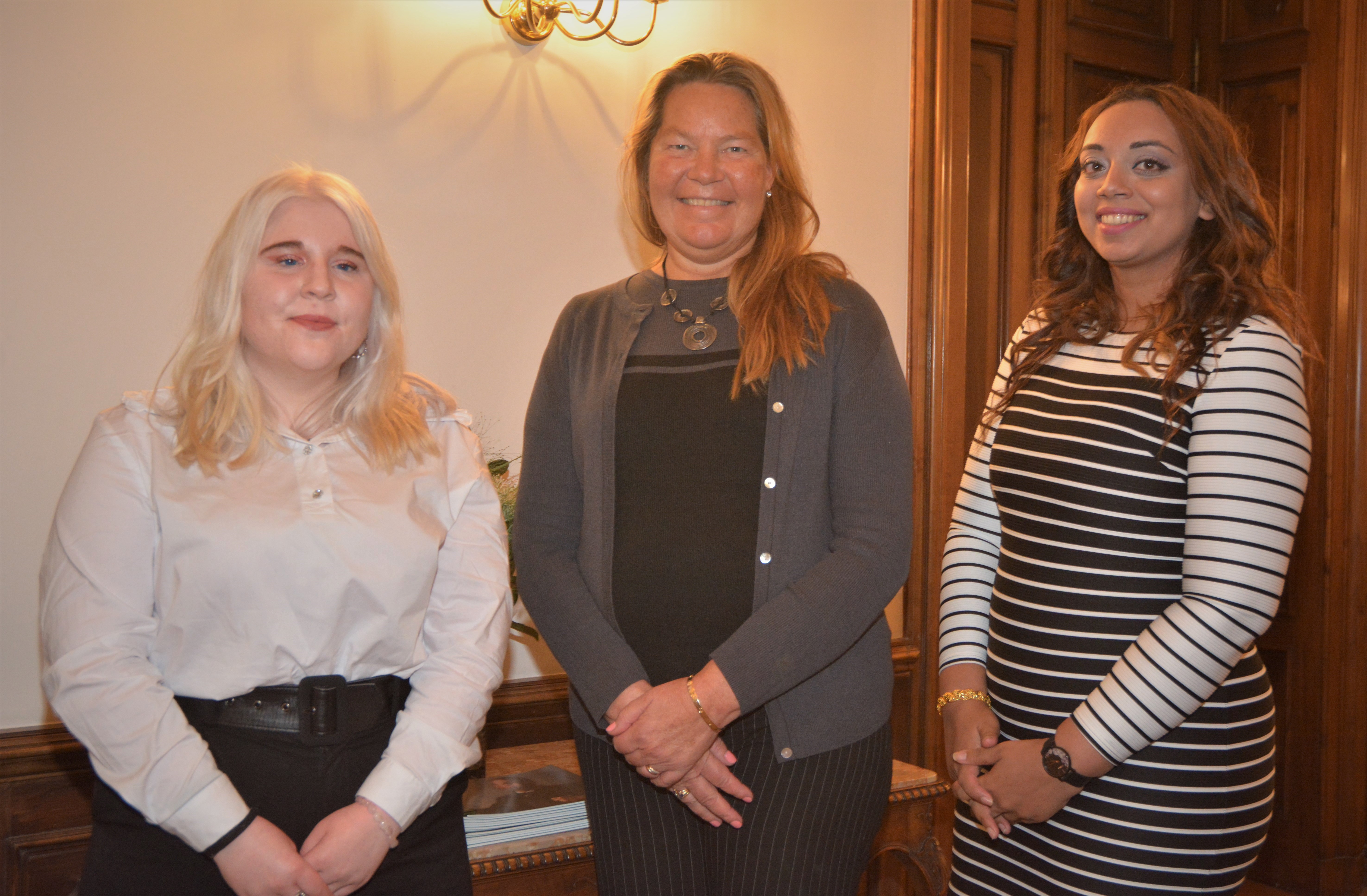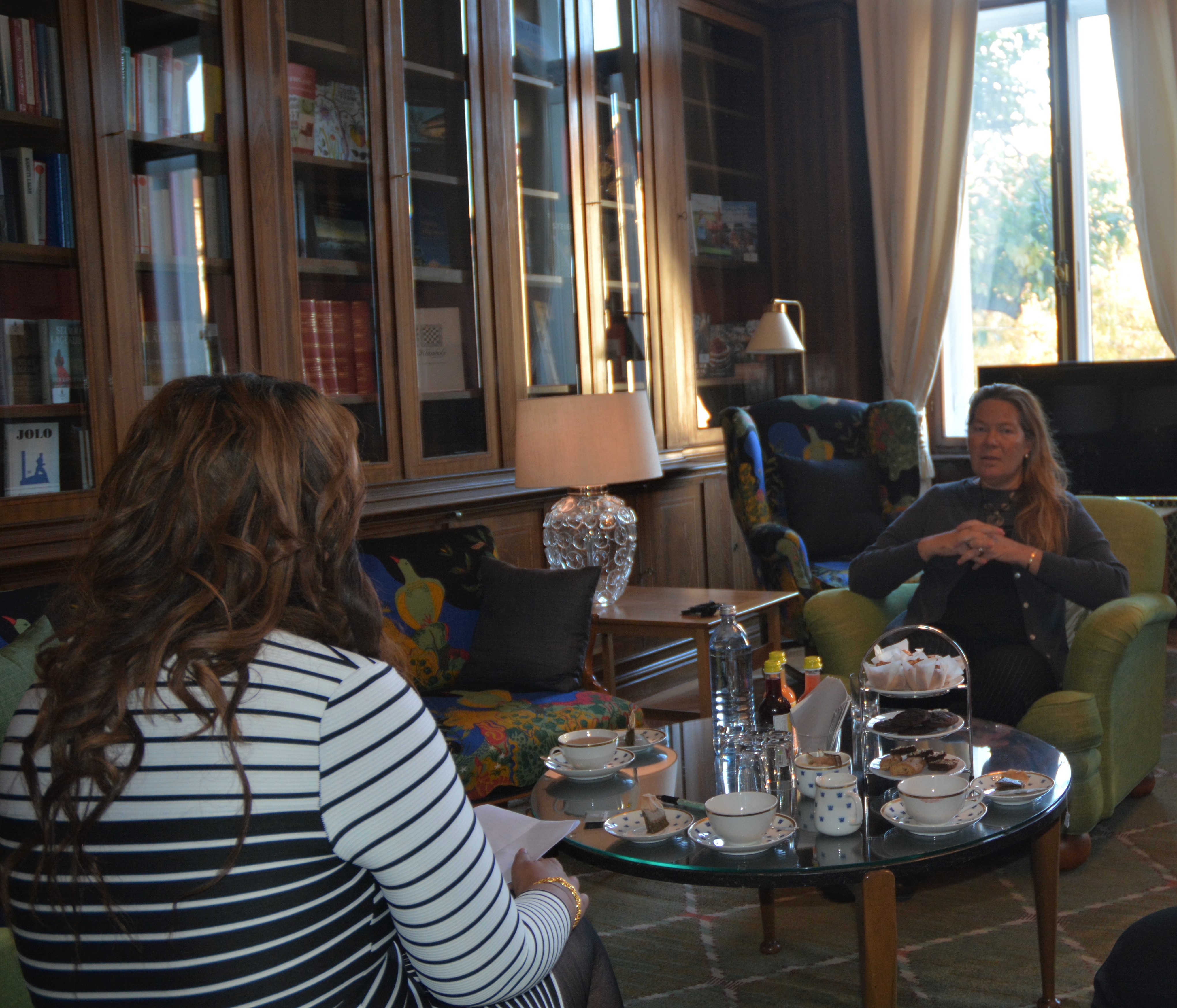Sweden: Approaches and Aspects of Feminist Foreign Policy



Feminist Foreign Policy - How it Came to Life
UNSA: As most of us know, Sweden is often considered an epitome as an example in Europe when it comes to people’s living standards, especially regarding women’s rights and how women influence the country in general. Could you elaborate a bit more on this topic?
Ambassador Annika Markovic (AM): In 2014, when the new government was formed after the election, our Prime Minister announced the intention to pursue a feminist foreign policy. We, the Swedish ambassadors and persons working in foreign services, were a little bit worried: What does this even mean and how are we going to implement a feminist foreign policy?
Our then Foreign Minister, Margaret Wallströn, felt we needed to do something on a new level in order to promote gender equality, so it couldn't just be business as usual. We had to find a way to really change things in practice, but she wasn't 100% clear on how this feminist foreign policy could be translated into actions.
UNSA: How did you find a way to give shape to the policy?
AM: We started collecting feedback from the entire foreign service, so it became like a bottom-up approach. A sort of catalogue was drafted and then we started working on these different topics that then became the feminist foreign policy.
AM: Sweden holds on to the principle of, firstly, rights in general. Resources: women should have resources to change whatever they are working on. And representation. Are women sitting there around the table, or are they just standing behind and watching?
UNSA: Back to the shaping of the policy…
AM: All of the knowledge and considerations were put together, harmonised and systemised. For example, when you are negotiating a resolution you need to constantly have the topic of gender equality in the back of your mind. It is either gender-neutral, or takes into account that men and women are different.
To gain more insights on how gender works, you interestingly enough only have to replace the word “he” with “she” in a report. That's when you realise how to change the perspective when you read how the policy actually is impacting gender - or not.
UNSA: Do you see any room for improvement or is it an ongoing process?
AM: It is still ongoing, and what I think is crucial for us is that we have a collection of best practices on the ministry's website, so you can go there and you can get inspired by what colleagues have done in other parts of the world.
Are you aware of the Wiki Gap? The Swedish Embassy in New Delhi, India, said: Let's use March 8th to invite people to come to the embassy and create and edit entries to ensure more women researchers, authors, and musicians are represented.
They wrote about it in this catalogue of best practices and then after a year, or a year and a half, that turned into a global Swedish campaign all year round for updating Wikipedia. This led to a joint effort with the people behind Wikipedia. We are not striving for 50/50 representation but a bit more than the current 20% is the goal.
Feminist Foreign Policy - Challenges, Disputes and International Conflicts
UNSA: Now there are 8 countries that have implemented FFP, with Mexico joining a year ago. What, according to you, are the fundamental building blocks a country needs to adopt in order to actually be prepared to implement a feminist foreign policy?
AM: First of all, I think people have to realise it does not only make moral sense, but it is also the smart thing to do - both for the economy and for society. I think what is important, also, is that this policy is not just for international purposes but needs to be implemented locally in order to work. A good balance is necessary in order to be effective.
UNSA: In 2015, Saudi Arabia recalled its ambassador from Stockholm in response to Sweden’s statements about a public flogging of a blogger. There was a cancellation of a military agreement between Sweden and Saudi Arabia, with leaders of prominent businesses in Sweden signing a letter that objected to Sweden’s official stance, warning that this new policy would ruin Sweden’s reputation as a trading partner.
Is it inevitable that the pursuit of a feminist foreign policy, from time to time, will come into conflict with other national (security) interests, and how do you weigh these competing priorities?
AM: I think you can always suggest and implement representation. For example, you can encourage female representatives in the delegation to multilateral conferences. It is a matter of which topics to tackle first as some are easier than others. You have to pick what works in practice as well - and with the tools available. Saudi Arabia is, for example, a member of the OECD, working towards positively changing inheritance rights for women.
UNSA: But when it comes to the economy at the time... It was also a threat to Saudi Arabia for economic backlashes in their position as an influential trader.
AM: I think that the Swedish business sector is very strong. It has been for many years. The countries or companies choose to trade with us based on the goods and services that we can provide, as well as the good reputation and good relationship. So, I don't think businesses threatening to stop doing business with us is an issue for us.
UNSA: There are some talks and rumours about different countries opening up for negotiations with the Taliban who are, according to many, posing a national security threat, if not global. We also had an interview with the Afghan ambassador who was highly against any involvement with the Taliban. Do you think Sweden will engage?
AM: So, we are very concerned for women and girls in Afghanistan. We want to see how this is developing, and unless we see some positive signs - then we are not going to talk to them. However, at the same time, in order to deliver humanitarian and emergency services, which we want to support, of course, we need to have an interaction with someone. The same thing happened with the evacuation that we have conducted, and we also had to agree on the ground to make it happen.
However, that does not mean that we have recognised the Taliban government and that we are moving towards a ‘new normal’ without considering the rights of women. Well, again, this is not a black-or-white situation.
What my foreign minister has said is that we are not going to leave the Afghan people. We want to continue to support the Afghan people. We have done that for so many years throughout all the difficult times, and Sweden has been there on the ground also with humanitarian assistance, we have also worked with them, giving girls the possibility for education, throughout all these years, so we're not going to leave the Afghan people.

A Woman Ambassador in an International Diplomatic World
UNSA: How do see your role in the process of feminist foreign policy and what were your motives to join foreign services, and to promote gender equality and human rights, nationally and internationally?
AM: I have always been passionate about foreign policy, so working in this field was a given for me. I have worked with the topic of gender equality and rights ever since I was stationed in Beijing. After the Beijing Conference, the policy became a trend until it received some backlash.
And that's what encourages me. I see progress, and then there is a backlash. I need to continue working and I need a challenge, and then I work more and then we make some more progress, and then there is another backlash - and you push forward again. But this is how it works, and you can never stop, so gender equality is something you need to continue to pursue for life.
I tell my daughters, and also my son, gender equality is something you have to work on all the time, because as soon as you stop you slide back.
UNSA: Have you ever felt pressure to be a role model?
AM: No, but I know that I have been an example for some younger colleagues. I became an ambassador at a young age and have three children while still pursuing a career. Managing that work-life balance is an inspiration to some of my colleagues.
UNSA: And a role model to the world?
AM: Yes. Initially, some people were laughing about the idea of a feminist foreign policy. People were saying, “Of course, Sweden, you're always promoting gender equality. It had to come from you.”
Now it is a much more respected idea. Also, as you mentioned before, several countries are pursuing a feminist foreign policy but it also makes more sense, economically. We can prove by studies and data that, for example, companies with equal representation of women and men in management and board positions have higher revenue. It is important to collect all these examples to strengthen our course, nationally and internationally.
UNSA: Many people in the public sphere and fellow diplomats who stick up for their values, “walk the talk”, feel sometimes like lonely voices. Have you experienced this during your time of leadership and what kind of advice could you give to fellow women in this field?
AM: For me, that has never been a problem. On the contrary, people expect me to take the sword to talk about gender equality. And if I don't, they urge me to do so: “Are you not going to say anything about gender equality in this particular discussion?”
I remember a particular instance when I was working at the UN in New York, at the early stages of my career with a small budget. During a very late night session, when the meeting was almost concluded by the Special Representative of Gender Equality in the Secretariat, the whole room said to wait until the Swedes had arrived with their input. And they waited till we arrived. So, be persistent if you believe in your truth, and people will start to appreciate you at some point.
UNSA: Do you have any career tips or recommendations for young professionals, especially women and girls, who want to join foreign service or work in international organizations?
AM: Young women should join management positions; my advice has always been to go for a career and go for management positions because once you start, choose and control your own path, life is much easier. So, don't be afraid to pursue a management career - it's sometimes even easier!
